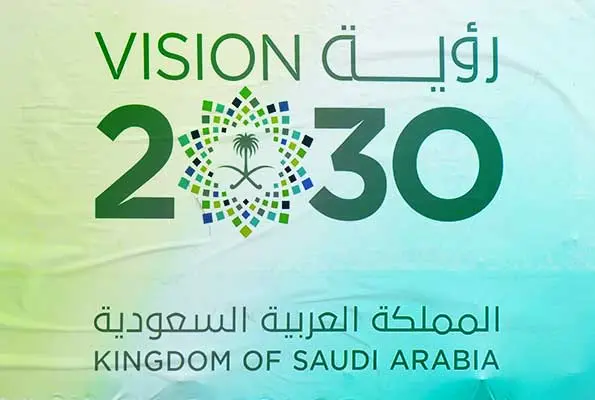What do you expect of a nation predominantly made of young people that strives for digital dominance? An unprecedented technological revolution that sends ripples across the world.
The “Vision 2030” economic diversification agenda seeks to make Saudi Arabia a technological powerhouse. Due to its advanced digital infrastructure and stakeholder involvement, it has emerged as the largest IT market in MENA and has exceeded the United States on a digital regulatory maturity index.
Connecting with local consumers, 63% of whom are under 30, requires keeping up with the digital pace. The Future Laboratory and Together Group’s “New Codes of Luxury in Saudi Arabia” survey found that 46% of Saudis aged 18–34 buy luxury goods online. They are also splurging on gaming, Web3, and crypto investments.
Saudi consumers want convenience, innovation, and distinctive experiences, and new technologies are meeting their requirements. Now the question is: how can luxury firms use these techniques to meet changing shopping habits?
New Focus On Local E-commerce
The Saudi government wants to increase non-cash transactions to 70% by 2025 from 62% in 2023 to boost economic growth and diversification. E-commerce sales will reach nearly USD 10 billion in 2025, up from USD 6.25 billion in 2022, according to Euromonitor.
According to consultancy firm Kearney, 74% of online customers will switch from global to local e-commerce platforms, demonstrating the Kingdom’s growing online economy.
Dubai-based Ounass, which offers rapid shipping to Saudi Arabia and other Gulf nations, is a popular luxury retail platform. It curates unique capsule collections from local and worldwide designers.
“E-commerce platforms in the region should observe this regional luxury mindset,” says Alex Hawkins, Strategic Foresight Editor, at The Future Laboratory.
“They must balance global and local appeal when arranging events and product offers. Region-specific collections are exclusive to this discriminating community,” Hawkins stated further.
To compete, global luxury merchants have done that. Farfetch opened its first office in the Middle East, launched an Arabic-language website, and offered private client services in 2017 alongside Chalhoub Group, a renowned luxury brand partner. Later, it joined with Rubaiyat to improve its local shopping offering.
“The new generation of Saudi customers respect their culture but want to be global in their luxury outlook; it’s a rare blend of worldwide sophistication and national nuance,” Hawkins says.
He suggests global e-tailers stock Saudi designers and offer competitive prices to stand apart.
Increased NFT Acceptance
According to Chalhoub Group, rising awareness of NFTs in the Gulf is opening new doors for fashion businesses. Some 23% of GCC luxury shoppers own NFTs, and 83% would buy one to redeem a tangible product.
In 2023, Chalhoub’s Web3-native shoe business, Sol3mates, launched its first NFT line. NFT holders could join the community for preferred pricing, free products, and early access to limited-edition drops.
Nick Vinckier, Sol3mates co-founder, told Jing Daily that Saudi Arabia’s positive response shows its rising interest in digital streetwear and virtual assets.
“Our top market is the GCC (UAE and Saudi Arabia), followed by France, the US, and Japan. Customer comment on NFTs emphasise their novelty, exclusivity, and investment potential, coinciding with worldwide digital fashion trends,” Vinckier stated further.
NFTs can acquire access to luxury events and experiences as well as actual things. At the third Riyadh Season, NFT access cards allowed holders to join Boulevard Riyadh City and Boulevard World, the festival’s main entertainment zones, and enjoy electronic games, festivals, concerts, and exhibitions.
NFTs enable more intimate consumer connections, unique revenue sources, and greater data insights for premium businesses.
Vinckier believes NFTs let organisers gather data on participant preferences and habits for more focused marketing.
“They also enable direct communication with guests, improving post-event engagement and community building. Engagement rather than purchases creates a new layer of client loyalty,” the official added further.
Now There Are Metacities
Based on Deloitte research, the metaverse might add USD 38 billion to Saudi Arabia’s GDP by 2035. This is shifting shopping expectations; 89% of GCC consumers want to preview products in the metaverse, while 71% use branded virtual experiences, according to Chalhoub.
Saudi Arabia launched XVRS, a digital twin metaverse platform of Neom, their smart city initiative. XVRS, a first-of-its-kind mixed-reality urban living paradigm, will allow guests to tour Neom as an avatar or hologram. Immersive entertainment, social media, and a crypto and NFT marketplace will be available.
The Saudi government developed a cultural metaverse to celebrate its formation. The platform lets audiences experience the country’s history with microgames, a live event centre, and reconstructions of historical sites.
Current metaverse projects in Saudi Arabia focus on real estate and tourism, but they indicate a growing need for creative experiences and a desire to diversify the economy.
Hawkins states, “Rapid acceptance of e-commerce and fintech is generating the proper conditions for a new breed of digital luxury among Saudis. Whether we call it the metaverse or not, this trickle-down effect will create a lot of future digital experiences and engagement opportunities.”


